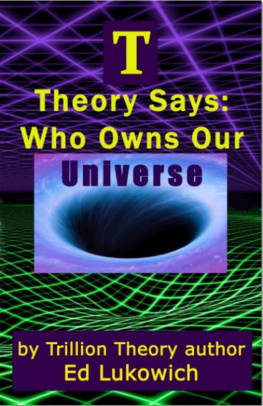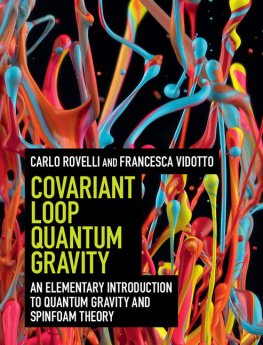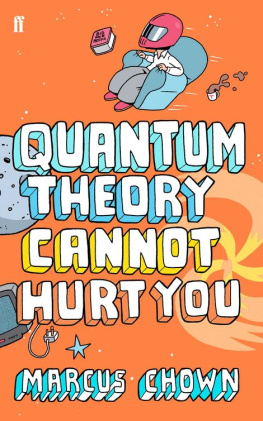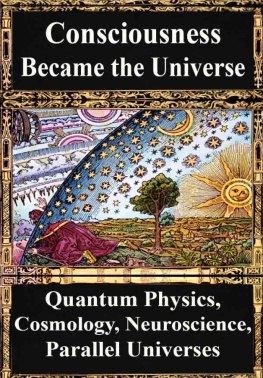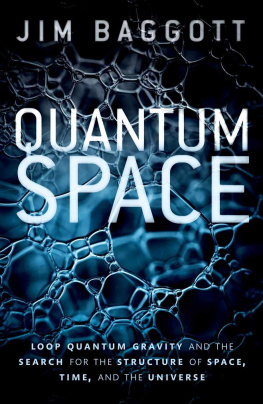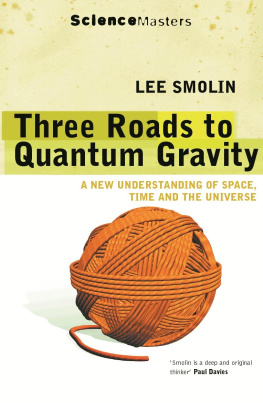This Is a Borzoi Book Published by Alfred A. Knopf
Translation copyright 2010 by Martin Bojowald
All rights reserved. Published in the United States by Alfred A. Knopf, a division of Random House, Inc., New York, and in Canada by Random House of Canada Limited, Toronto.
www.aaknopf.com
Originally published in Germany as Zurck vor den Urknall: Die ganze Geschichte des Universums by S. Fischer Verlag GmbH, Frankfurt am Main, in 2009. Copyright 2009 by S. Fischer Verlag GmbH, Frankfurt am Main.
Knopf, Borzoi Books, and the colophon are registered trademarks of Random House, Inc.
Library of Congress Cataloging-in-Publication
Bojowald, Martin.
Once before time : a whole story of the universe / by Martin Bojowald.
p. cm.
eISBN: 978-0-307-59425-9
1. Cosmology. 2. Beginning. 3. Space and time. I. Title.
QB981.B684 2010
523.1dc22 2010015937
v3.1
CONTENTS
PREFACE
and if he does not do it solely for his own pleasure, he is not an artist at all.
OSCAR WILDE, The Soul of Man Under Socialism
T here are many reasons for a scientist to write a popular book, and many others not to. Research has primacy in science; this is where careers are forged and honors earned. Everything else wastes precious timeat least in the eyes of many a colleague who might one day be asked for an evaluation of ones work.
But what good does all scientific progress do if it cannot be communicated? Do we really understand the world if we cannot explain it without the requirement of long, demanding studies? Learning a complex matter too often means that we merely accept its crucial ingredients and principles, getting used to standard methods of calculation. A true test of our understanding comes only when knowledge is to be explained to an open-minded layperson free of preconceived notions. In this sense, quantum mechanics as one example is, despite all its many successes and technological applications, far from being understood (as indicated, perhaps, by the third chapter of this book). Writing a popular book is thus an exercise of utmost relevance for a scientists own work.
A popular book is, moreover, the ideal place to allude to the unity of science, literature, and art. In all these areas one tries to picture the world and to communicate it. This unity, of course, does not exist in reality but only as an ideal. But a book that aims to be widely accessible has a right to call upon this ideal. For this reason, I am grateful to those who helped me tap this unity. In the realm of art, I thank Gianni Caravaggio, some of whose works are represented here and who contributed in several discussions to my understanding. Thanks also go to Rdiger Vaas, who, over many years, has helped me to understand and to communicate my understanding. He was among the first to find my scientific results worthy of wide dissemination. Many others, who cannot all be named here, have continually forced me to leave the fortified ivory tower of science.
This book would not have come into existence without the original suggestion of Jrg Bong from S. Fischer Verlag, and the subsequent support of Alexander Roesler. For reading parts of my manuscript and for their many useful suggestions, I am grateful to Gisele Ben-Dor, Maryam Shaeri, and Hannah Williams. I thank the Physics Department of Pennsylvania State University, who know how to provide an exceptionally agreeable and stimulating atmosphere for its members. Early on, they offered me a free semester without even knowing about my writing plans! Penn States Institute for Gravitation and the Cosmos has afforded me unique opportunities for multidisciplinary discussions and research related to topics in this book. The expertise of many of my colleagues has, at least subliminally, found its way into my writing.
I thank Elisabeth and Stefan Bojowald for their critical reading of an early version of the book, and for some hints such as those about cyclic images in Egyptology. In conceptualizing some passages, I was inspired by the tranquillity of their retreat at the edge of the Eifel Range.
STATE COLLEGE, PENNSYLVANIA
APRIL 2008 / SEPTEMBER 2009
INTRODUCTION
The more abstract the truth you want to teach, the more you must seduce the senses to it.
FRIEDRICH NIETZSCHE , Beyond Good and Evil
T he goal of science has always been nothing less than as complete an understanding as possible of the laws of the worldnothing less than as unequivocal a description as possible of what we see and probe. Nothing less than coming as close as possible to what can be considered truthin a nonsubjective way, the only way that counts.
Over the course of the last century, physical research in particular has progressed far to build a dominant theoretical edifice: quantum mechanics and general relativity. Understanding nature on the large and the small scale has become possible, from the whole universe in cosmology all the way down to single molecules, atoms, and even elementary particles by means of quantum theory. Precise descriptions and a deep understanding of a wide variety of phenomena have resulted, and they have been spectacularly confirmed by observations. Especially during the past decade, this hallmark of scientific success has also been achieved in the cosmology of the early universe.
Aside from its technological relevance in almost all areas of everyday life, an unmistakable sign of the quality of scientific progress is that for quite some time, some fields of scientific inquiry have touched upon questions traditionally held to be in the realm of philosophy (giving rise to the term experimental metaphysics, coined by the physicist and philosopher Abner Shimony). Since Aristotle, the aim of all theory has been to shed light on general phenomena and to understand their causes, in contrast to collecting disconnected bits of knowledge. Philosophy, by contrast, asks for the deepest origin or principles of all that exists. In this sense, the merging of some physical and philosophical issues can in fact be considered a distinguishing feature of scientific progress. When physics pushes ahead to such questions, it gains a position that allows it to contribute to discussions of far more generaland more far-reachinginterest. In the context of a combination of cosmology and quantum theory, the most important question is that of the emergence and the earliest phases of the universe, a question that has preoccupied humankind ever since the beginning of philosophyand even before.
Other questions that have engaged thinkers over the centuries, and that remain of great significance, in quantum theory as well as general relativity, are the role of observers in the world and the question of what can be observed at all and what perhaps cannot. In cosmology, the entrance of physical research methods means the emergence of empirically testable scenarios for the whole world. The big bang model is founded on general relativityas a description of space, time, and the driving gravitational forceas well as on quantum theory, which is indispensable to understanding properties of matter in the early universe. From all this, a breathtaking explanation results for the successive emergence of all matternuclei, atoms, and compound material objects all the way up to galaxiesout of an extremely hot initial phase.
At this rarefied place, the limits of the established worldview become visible. In spite of all their successes, general relativity together with quantum theory, as they are being used today, do not provide a complete description of the universe. When one solves the mathematical equations of general relativity in hopes of finding a model for the temporal evolution of the universe and its long-term history, one always reaches a pointthe so-called


